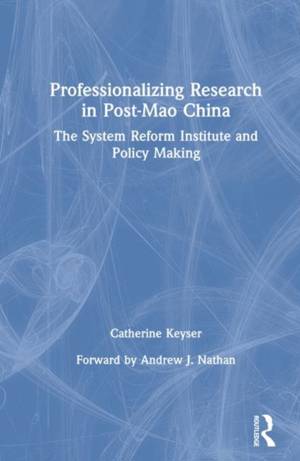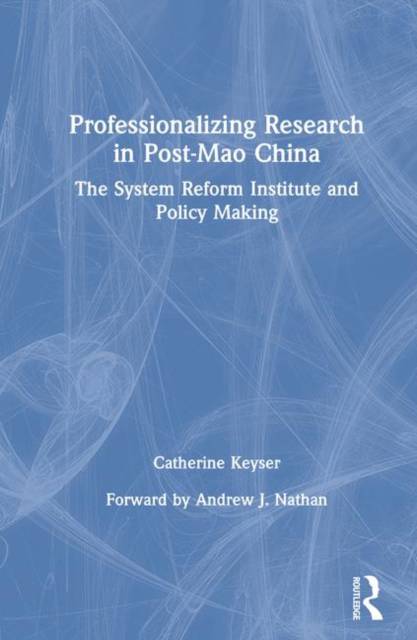
- Retrait gratuit dans votre magasin Club
- 7.000.000 titres dans notre catalogue
- Payer en toute sécurité
- Toujours un magasin près de chez vous
- Retrait gratuit dans votre magasin Club
- 7.000.0000 titres dans notre catalogue
- Payer en toute sécurité
- Toujours un magasin près de chez vous
Professionalizing Research in Post-Mao China
The System Reform Institute and Policy Making
C H Keyser
305,45 €
+ 610 points
Description
The ongoing suppression of journals, and obstacles faced by non-governmental research organizations, attest to the enduring challenges for creating alternative sources for discussing China's reform and transition. This book looks at research institutes and journals in China and the dilemmas of transition by chronicling the tensions between the need to create an "autonomous space" for policy making and the problems created by such activities. The "non-governmental fever" of the 1980s and the development of research organizations and journals claiming to be non-governmental - to avoid political oversight and claim an arena independent of party-state influence - raise a fundamental question about how a political system characterized by bureaucratic rigidity, poor information flows, and a politicized policy-making environment generates ideas for reform, while at the same time controlling the direction of debate and discussion. This book is built on extensive personal interviews with former members of Zhao Ziyang's "brain trust," the Chinese Economic System Reform Research Institute (SRI), and on the wealth of material on reform to emerge in the last five years. It addresses a void in our knowledge of this dynamic decade of reform by recounting the story of the SRI in the voice of its members and placing it in the context of elite politics as well as in the context of the institute as a catalyst for opening issues of reform and post-communist transitions. Those associated with the institute are known as the "young reformers" and represent a generational cohort whose activities greatly impacted China's reform process. The publications, research organizations, and policy making environment of the 1980s and post-Tiananmen era are essential for examining the larger question of China's transition from socialism.
Spécifications
Parties prenantes
- Auteur(s) :
- Editeur:
Contenu
- Nombre de pages :
- 256
- Langue:
- Anglais
- Collection :
Caractéristiques
- EAN:
- 9780765609267
- Date de parution :
- 31-08-02
- Format:
- Livre relié
- Format numérique:
- Genaaid
- Dimensions :
- 161 mm x 239 mm
- Poids :
- 489 g

Les avis
Nous publions uniquement les avis qui respectent les conditions requises. Consultez nos conditions pour les avis.






